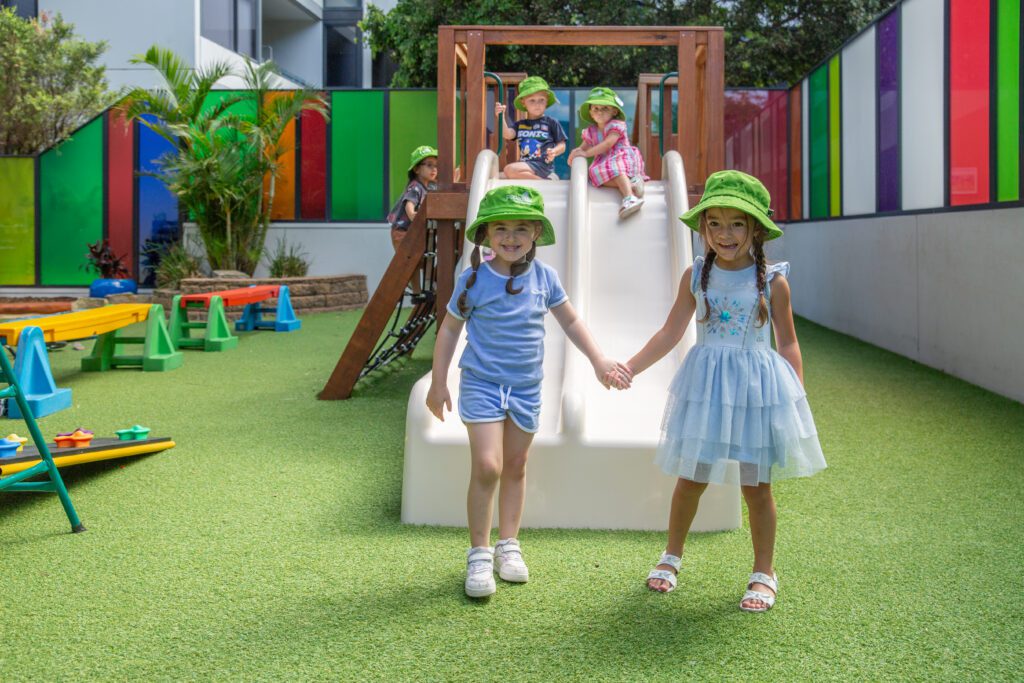
How Early Friendships Build Resilience in the Preschool Years
There is something beautiful about watching young children form friendships.
The tentative approach. The negotiation over who gets to be the “shop keeper.” The repair after a disagreement. The way they circle back the next day as if nothing happened.
To adults, it may look like simple play. But in those small, everyday interactions, children are building resilience. And resilience – in the early years – grows in relationship.
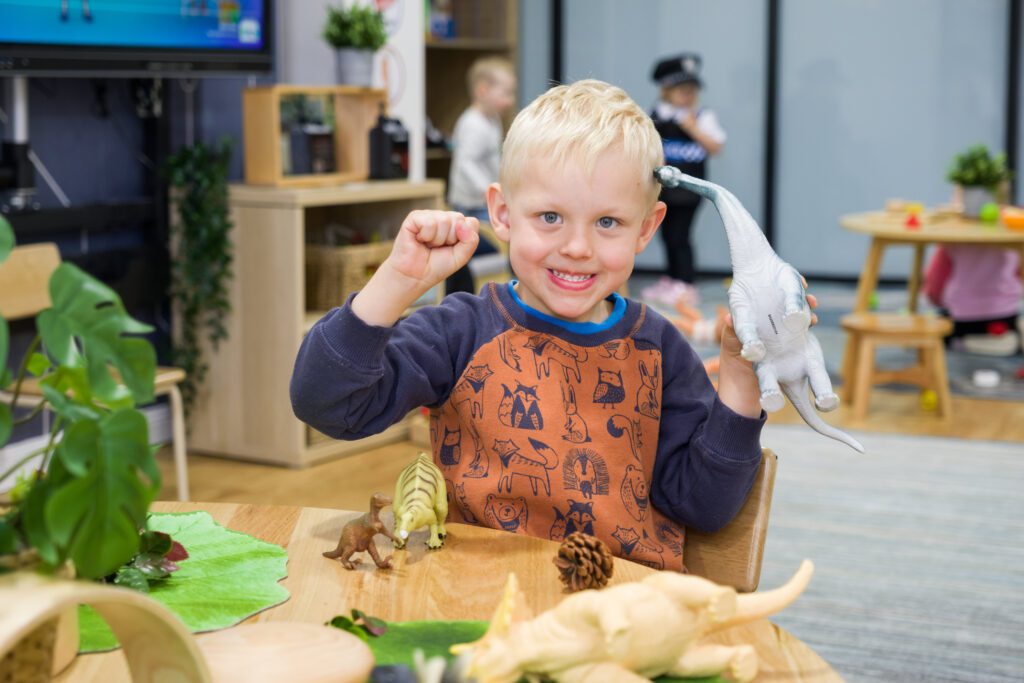
Big Feelings Explained: What’s Normal for Toddlers and Preschoolers?
Big feelings can feel all-consuming, for children and for the adults supporting them.
One moment your child is happily playing, the next they’re overwhelmed by frustration, disappointment, or exhaustion. Often, it happens at the end of a long day, during a transition, or when words don’t quite come easily enough to explain how they feel.
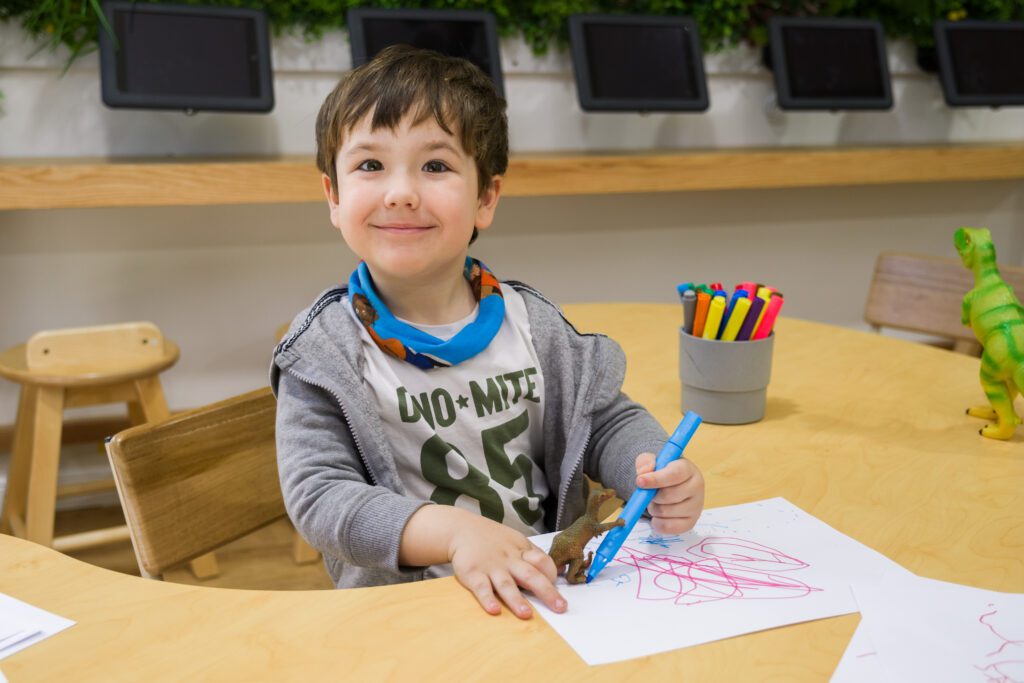
Tips From an Educator to Help Your Child Sleep Better
If sleep has felt unsettled lately, you’re not alone.
Many families experience periods where bedtime becomes harder, night wakings return, or routines that once worked suddenly don’t. It can be tiring, and at times unsettling, especially when you’re doing your best to support your child and nothing seems to stick.
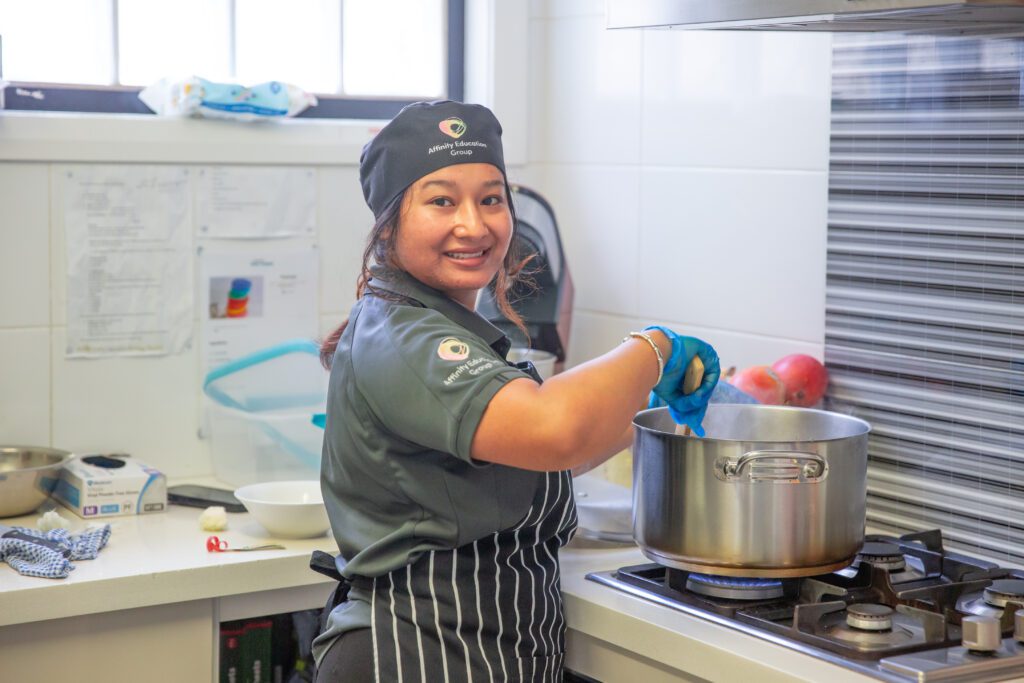
Fresh, Nourishing & Beautifully Balanced: Our New Summer Menu Has Arrived at Papilio
As parents, we think a lot about what our children eat, especially when they’re spending their day learning, exploring and growing in an early learning environment. We want food that feels thoughtful. Food that’s made with care. Food that supports their little bodies and minds through every milestone.
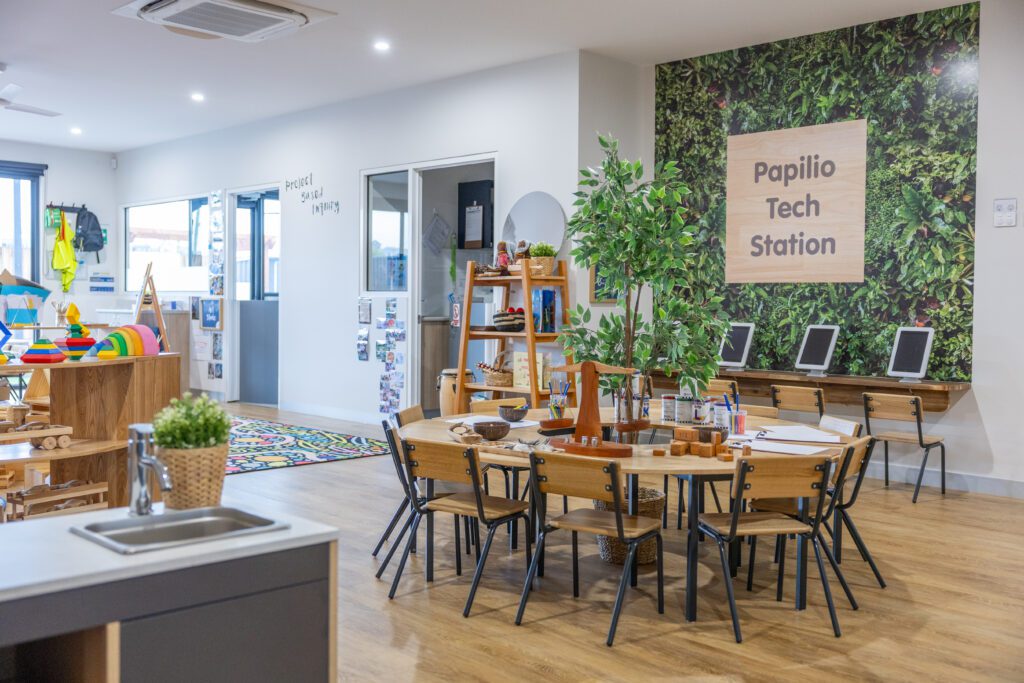
Screens & Under-5s: How Papilio Encourages Healthy Digital Habits from the Start
In today’s world, screens are everywhere, from video calls with grandparents to digital storybooks and classroom smart screens. For families with young children, the question isn’t whether technology should be used, but how to use it meaningfully.
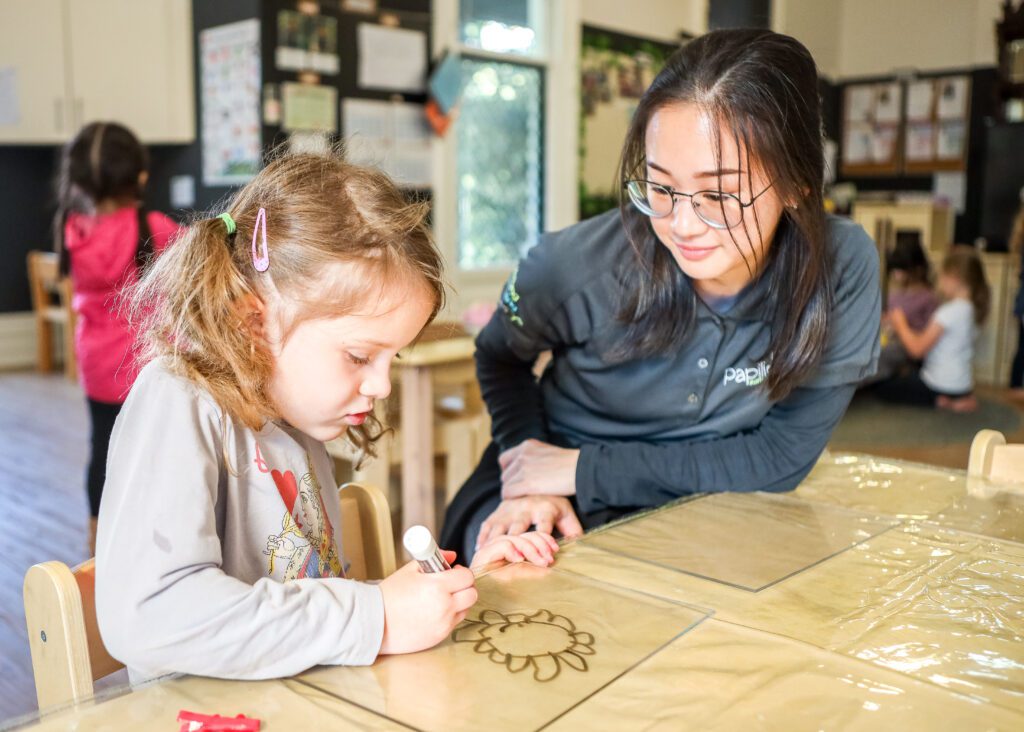
Why Two Years of Kindergarten or Preschool Could Give Your Child the Best Start to School
The years before school are some of the most magical and important in a child’s life. Every question asked, every story told, and every friendship formed helps shape who they’ll become.
That’s why many families are now choosing two years of kindergarten or preschool, giving children more time to develop confidence, curiosity, and essential skills before taking the next big step into school.
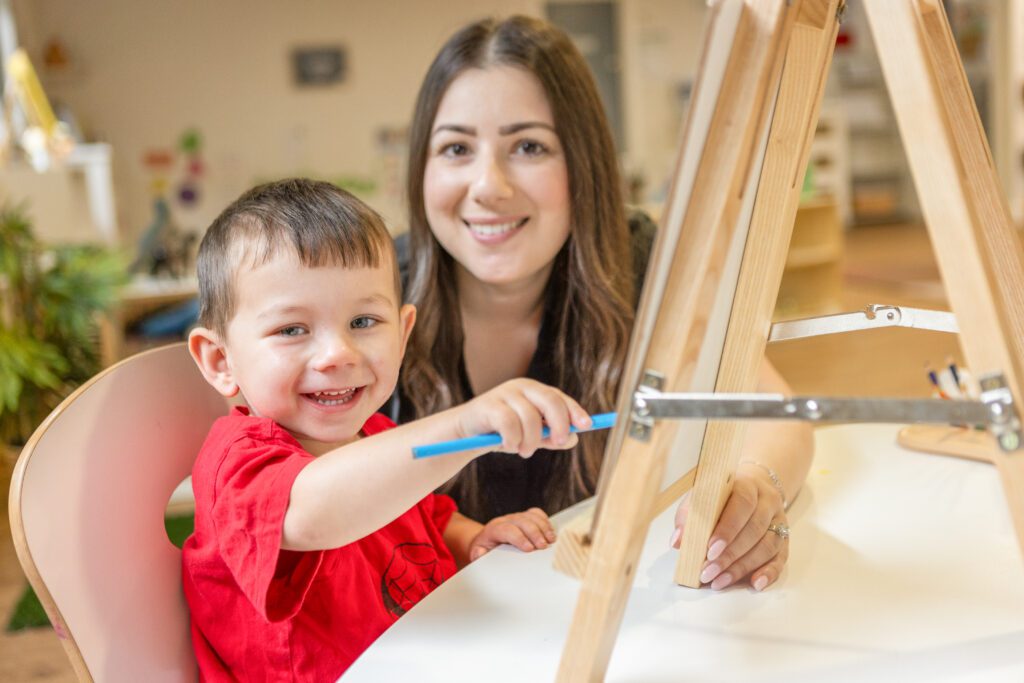
Toilet Training with Confidence: How Papilio Educators Support Your Child’s Next Big Step
Toilet training is one of those milestones that can feel just as big for parents as it does for toddlers. At Papilio Early Learning, we know that supporting your child through this stage requires not only patience, but also a thoughtful, nurturing approach that builds confidence and independence.
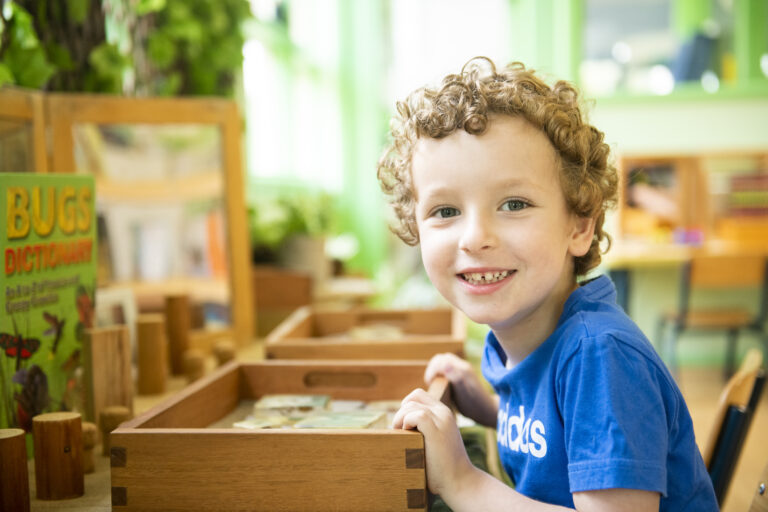
Nurturing Bright Smiles: Supporting Your Child’s First Dentist Visit
Recently, I took my 3-year-old to the dentist for the first time. She tried so hard to be brave, but when it was her turn, nerves got the better of her and she couldn’t quite open her mouth. Our dentist reassured us this was normal, and suggested we try again in a few months, this time letting her watch me first so she could see what happens.
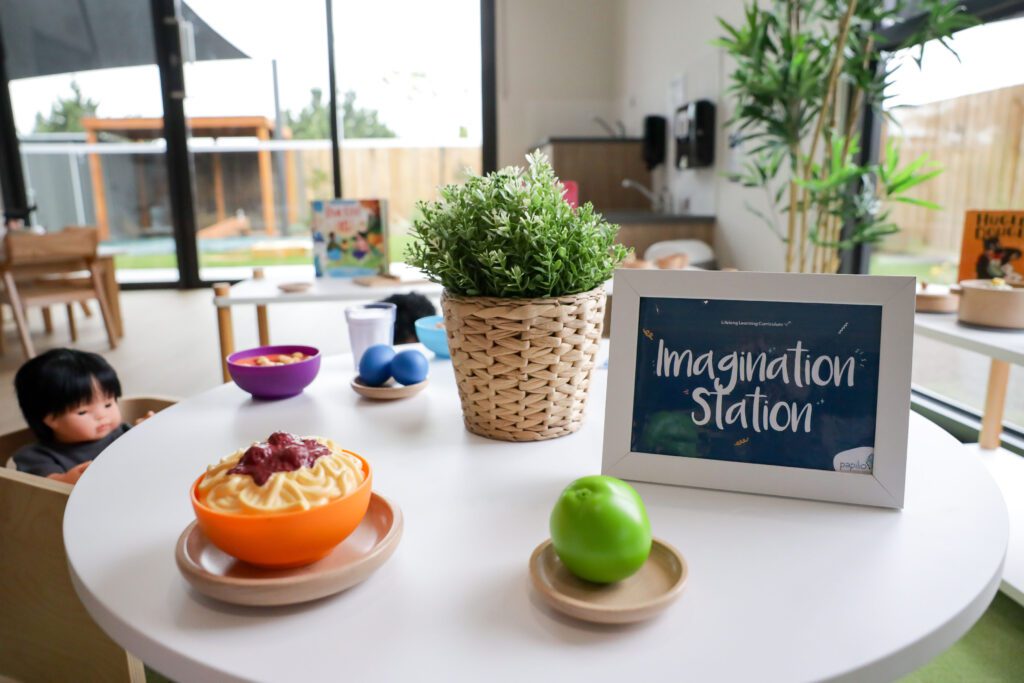
Play with Purpose: How to Design a Learning-Rich Space at Home
In the rush of daily life — packed lunches, work meetings, sticky fingers, and sibling negotiations — creating a space where your child can slow down, focus, and play meaningfully might feel like an impossible dream.
But here’s the beautiful truth: you don’t need a perfectly styled playroom or shelves of designer toys to offer your child a rich, play-based learning experience at home. In fact, with just a small corner, a few intentional choices, and a little insight into how children learn, you can build a play-and-learn nook that nurtures creativity, independence and calm.
At Papilio Early Learning, we see every day how play shapes children’s thinking, behaviour and connection. And with just a little inspiration from our learning environments, you can bring that same purpose-driven play into your own home — no big budget required.
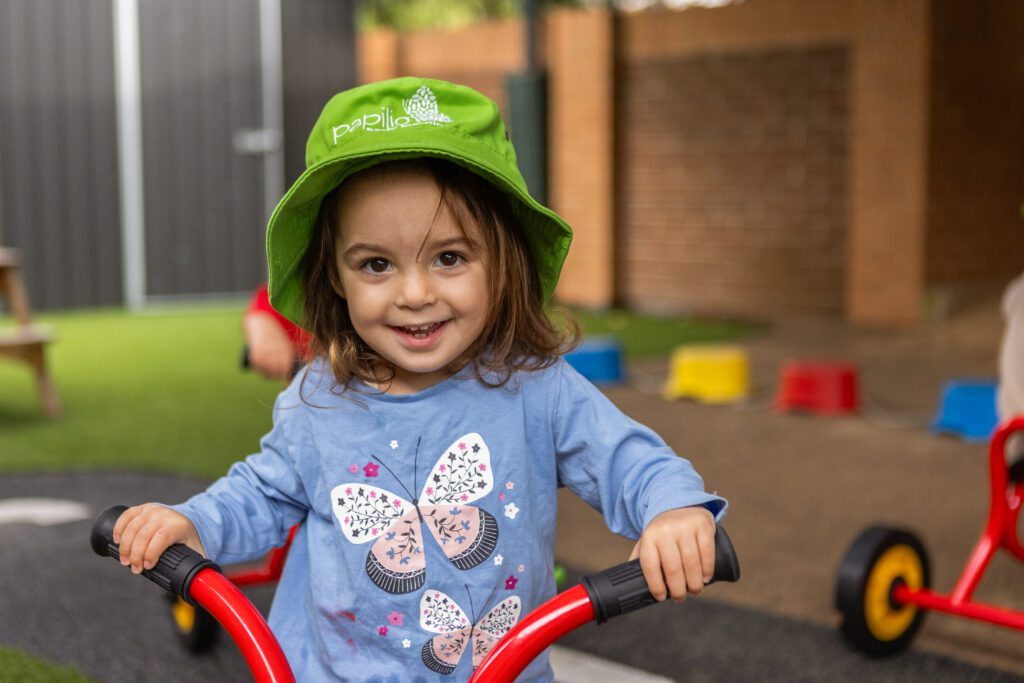
Supporting Your Child When They’re Nervous Around New People or Settings
“You clung to my hand as we walked through the door, wide-eyed and silent. I bent down, smiled, and gently nudged you forward—but you held back. Meanwhile, your little sibling was already off making friends. I paused. Why is this so hard for you?”
If this moment feels familiar, you’re not alone—and your child isn’t the only one who feels this way.
At Papilio Early Learning, we recognise that every child is beautifully unique. Some children thrive in new settings. Others take a little more time to feel safe and settled—and that’s perfectly okay. For parents, especially those with children of different temperaments, these differences can be surprising. But they’re also a natural and important part of your child’s development.
Whether your child is a toddler just beginning to explore the world or a preschooler preparing for school, feelings of nervousness are common. Knowing how to respond with understanding and support can make a world of difference.